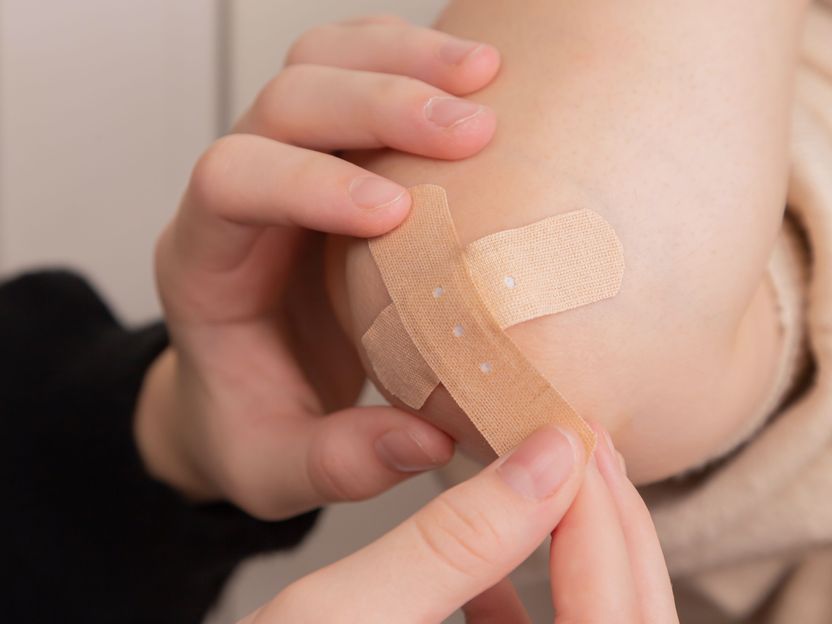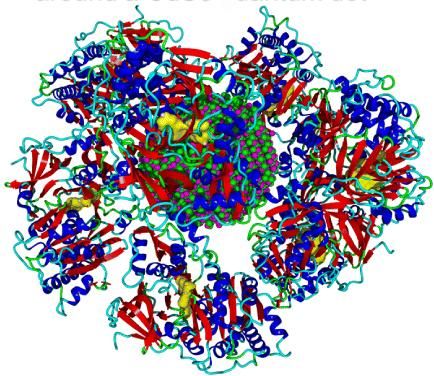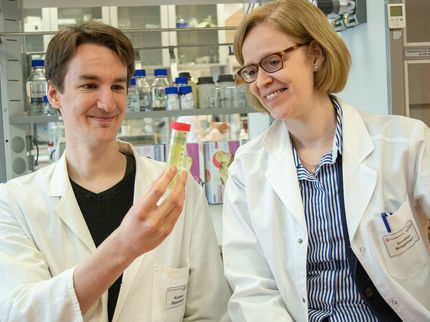Toolbox for the development of bioadhesives created
The team of Prof. Dr. Thomas Scheibel, Chair of biomaterials at the University of Bayreuth, has compiled a current overview of the state of research on protein-based bioadhesives. Internationally, there are many products, some of which are still being under investigation, but some of which are already on the market. The Bayreuth review article gives researchers an overview of what is known and can thus accelerate the development of these innovative biomaterials.

Bio-adhesives are a real boost for medicine: they enable better wound care and wound healing, so less scarring is expected (symbolic image).
Unsplash
Adhesives are (mostly chemical) substances used to bond surfaces. However, for bonding biological and living substrates, adhesives are needed that are bio-compatible, non-toxic and biodegradable. "Compared to sutures, bioadhesives in medicine offer the advantage of being less invasive, faster and, above all, easy to use," says Prof. Dr. Thomas Scheibel, Chair of Biomaterials at the University of Bayreuth. Together with his co-workers at the Chair of Biomaterials, Christina Heinritz and Xuen Jen Ng, he has now undertaken a comparison of current research in this field in order to classify the international state of research. "With our work, we offer a kind of ‚toolbox‘ that can promote and accelerate the development of novel protein-based bioadhesives," says Prof. Dr. Thomas Scheibel. "In the future, bioglues will make it possible in particular to connect and reattach fragile tissue, such as individual nerves."
When developing bioadhesives, the researchers always find inspiration in nature. Various mussels, spiders or fireflies, for example, form protein-based adhesives. There are already some bio-adhesives on the market that are based on natural biopolymers. Work is also being done on multifunctional adhesives that, for example, stick reliably in contact with blood. The advantages of bioadhesives are manifold, but also the number of products is hardly manageable. Therefore, it was time to make an analysis of the existing adhesives and to classify them in an overview.
Bio-adhesives are a real boost for medicine: they enable better wound care and wound healing, so less scarring is expected. "In many cases, the mechanical properties of the adhesives can be adjusted to resemble the stiffness of the target tissue, leading to less irritation during movement compared to staples or sutures. In contrast to synthetic adhesives, such as acrylates, there are also fewer or no toxic by-products," says Scheibel.
In the last century, adhesives were already used for medical purposes. However, the "classic adhesives" were found to be toxic. The current problem is that the adhesives either stick quickly and well or they are biocompatible. Therefore, until today, sutures have been the standard for surgical interventions in both internal and external wounds. However, since the 1960s there has been a growing interest in using bio-adhesives for wound treatment as well.
Original publication
Other news from the department science

Get the life science industry in your inbox
By submitting this form you agree that LUMITOS AG will send you the newsletter(s) selected above by email. Your data will not be passed on to third parties. Your data will be stored and processed in accordance with our data protection regulations. LUMITOS may contact you by email for the purpose of advertising or market and opinion surveys. You can revoke your consent at any time without giving reasons to LUMITOS AG, Ernst-Augustin-Str. 2, 12489 Berlin, Germany or by e-mail at revoke@lumitos.com with effect for the future. In addition, each email contains a link to unsubscribe from the corresponding newsletter.
Most read news
More news from our other portals
Last viewed contents
Category:Sympathomimetics
Kidney_(Zang)
Liu_Zi_Jue






















































